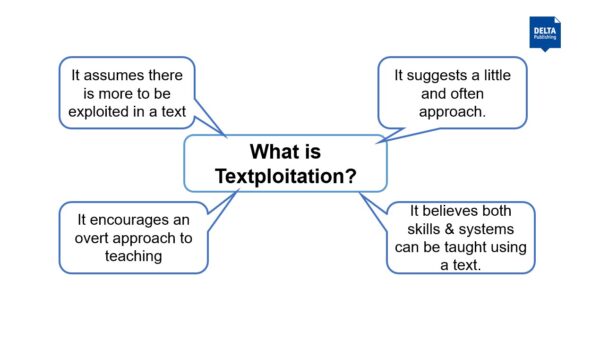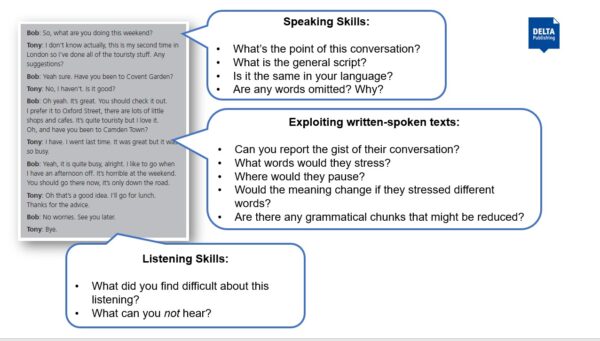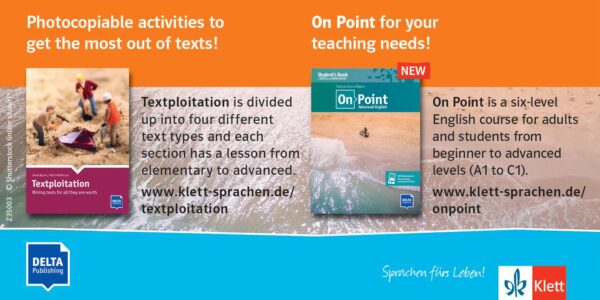On Jan 2nd, ELTAS welcomed David Byrne and Mark Heffernan for an online workshop on ‘Texploitation’, which was kindly sponsored by Klett. It proved to be a stimulating afternoon, with a lot of interaction and concrete takeaways that the participants could apply to their teaching.

What is Textploitation you may ask? It is the idea that texts, including those in textbooks, are valuable resources that are underutilized by teachers. The reasons for this are:
- Texts can be rich and interesting sources of language, for example providing examples of conditionals that move beyond the classic 0-3 categorization, or of genre and register.
- Texts tend to be vehicles for teaching vocabulary and grammar
- When skills are included they tend to be tested, rather than taught, e.g. answering gist questions and getting 3 out of 5 right will not make you better at answering gist questions in the future.

Therefore, Textploitation proposes the following approach:
1) Using texts to teach both systems and skills
2) Using a little and often approach
Skills especially don’t have to be taught through entire lessons; they can instead be taught by looking at them briefly but regularly. An example of an activity could be asking students to identify the genre of a written text and to justify their answers. For a spoken text it could be asking how a certain word is pronounced or what sounds are emitted.
3) Using an overt approach to teaching
Research shows that most of the time students don’t actually understand why we do things in class. Therefore, when using texts there should be an ongoing dialogue with students about the aims of activities, the skills they are practising and how they can be applied. Take, for example, an activity where the students have to pick out language that shows that the author is giving their opinion. This is an important 21st century skill (distinguishing fact from opinion) and it is worth making the students aware of this.
4) Linking students to real life reading experiences
It is useful if text activities mirror how students may interact with texts in the ‘real world’. This can be as simple as the question “Do you agree with the writer?”, or “What would you tell someone else about the text?”. One of my favourite ideas was for students to find a GIF which shows their reaction to the text.

It is important to remember that the idea of Textploitation is not that coursebooks are bad or to replace the text exercises already provided in them, but rather to enhance them with short additional discussions and activities that can be done little and often. In the second two hours of the workshop, we worked in groups in breakout rooms to come up with activities for some texts from Klett’s ‘On Point’ series. It was great to exchange ideas and get feedback from Mark, and the variety of activities that all the groups came up with was really impressive.

Overall, I found this workshop really enjoyable and useful. As a business English trainer, I use newspaper or internal company articles as texts rather than coursebooks, but a lot of the ideas from the workshop are still applicable to the work I do. David and Mark are great presenters and are obviously really passionate about this topic. If you are interested, they have also written a book on Textploitation, published by Delta.


No Comments Yet